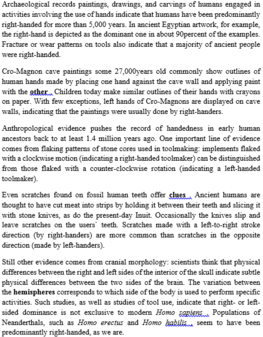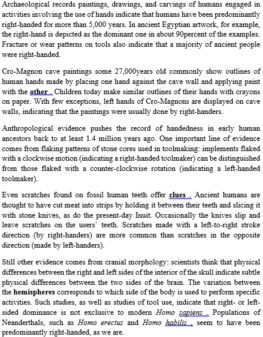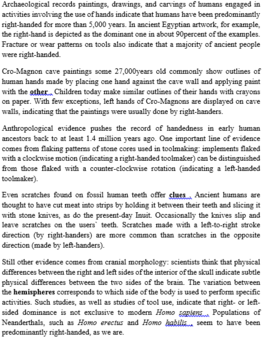Read the following passage and mark the letter A, B, C, or D on your answer sheet to indicate the correct answer to each of the questions from 36 to 42.
Even with his diverse experience as an elected official at the state level, Andrew Johnson was the first president of the United States ever to be impeached, primarily because of his violent temper and unyielding stubbornness. His career started in 1828 with his collection to the city council of Greenville, Tennessee, and after two years as an alderman, he took office as mayor. His advancements followed in rapid succession when he was elected to the Tennessee state senate, then as the state governor, and later to the U.S. House of Representatives for five consecutive terms.
In 1864, Johnson ran for the office of vice-president on the Lincoln- Johnson ticket and was inaugurated in 1865. After Lincoln’s assassination six weeks into his term, Johnson found himself president at a time when southern leaders were concerned about their forced alliance with the northern states and feared retaliation for their support of the secession. Instead, however, with the diplomatic skill he had learned from Lincoln, Johnson offered full pardon to almost all Confederates on the condition that they take an oath of allegiance. He further reorganized the former Confederate states and set up legislative elections.
Congressional opposition to his peace- making policies resulted in gridlock between the House and Johnson, and the stalemate grew into an open conflict on the issue of the emancipation of slaves. While Johnson held the view that newly freed slaves lacked understanding and knowledge of civil liberties to vote intelligently, Congress overrode Johnson’s veto of the Civil Rights Bill, which awarded them citizenship and ratified the Fourteenth Amendment. In the years that followed, Congress passed bills depriving the president of the power to pardon political criminals, stripping away his status of commander-in-chief, and taking away Johnson’s right to dismiss civil and executive officers from their duties. Johnson vetoed each bill, and each veto was overridden. When Johnson dismissedvthe secretary of war, Edwin Stanton, Stanton refused to step down and was supported by the House of Representatives, which voted to impeach Johnson. At the trial, the Senate came one vote short of the two-thirds majority necessary to remove him from office. After Johnson’s term expired, he returned to his home state, but in 1875 he was elected senator and went back to Washington to take his seat.
According to the passage, the attempt to impeach Andrew Johnson
A. overwhelmed his supporters in Tennessee
B. succeeded as expected by the House
C. failed by a minimal margin
D. put an end to his political career






Đáp án C
Thông tin: At the trial, the Senate came one vote short of the two-thirds majority necessary to remove him from office.
Dịch nghĩa: Tại phiên tòa, Thượng viện thiếu một phiếu của hai phần ba tổng số cần thiết để loại bỏ ông khỏi văn phòng.
Như vậy nỗ lực bãi nhiệm Johnson chỉ thiếu 1 phiếu nữa là thành công, đó là một khoảng cách rất nhỏ.
Phương án C. failed by a minimal margin = thất bại với khoảng cách tối thiểu, là phương án chính xác nhất.
A. overwhelmed his supporters in Tennessee = choáng ngợp người ủng hộ ông ở Tennessee
Không có thông tin như vậy trong bài.
B. succeeded as expected by the House = đã thành công như mong đợi của các nhà
Không có thông tin như vậy trong bài.
D. put an end to his political career = đặt dấu chấm hết cho sự nghiệp chính trị của ông
Không có thông tin như vậy trong bài